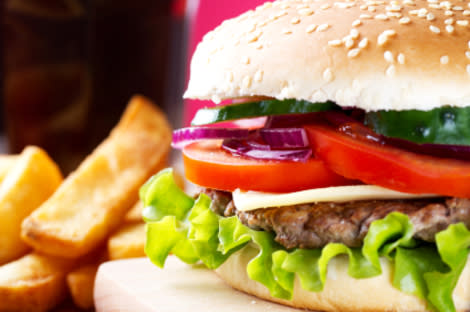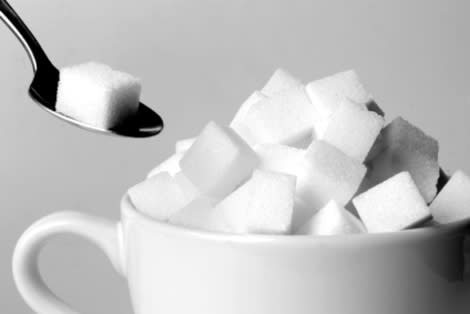The 5 Worst Sins in American Diets

American diets leave plenty of room for improvement. A 2011 Gallup poll showed that in May of that year, only 55.9% of Americans claimed to have eaten the recommended five or more servings of vegetables and fruits on at least four days in a given week.
There are plenty of ways in which Americans miss the mark in terms of modern nutrition recommendations. Here are the five worst American dietary "sins."
Read Also - Choosing the Right Fruits and Vegetables for You
1. Mindless eating
Effects: Weight gain and less appetite for healthy foods at mealtime. Your mother was right to be concerned about spoiling your appetite between school and dinner.
Mindless eating is defined as eating for reasons other than physical hunger. It doesn't take long to develop a habit of sitting down to watch your favorite television program with a bag of chips and a soda. People also engage in mindless snacking when they're bored, under stress, or sad. The simple act of not snacking when you're not physically hungry can save a significant number of empty calories over time.
Read Also - Health Danger of Eating Packaged Food
2. Giant portion sizes
Effects: Higher cholesterol levels, weight gain, and the dreaded afternoon slump that hits after eating a big lunch.

There's nothing wrong with having a big plateful on Thanksgiving or for other special occasions. However, Americans have grown used to having huge portions of food on their plates. Restaurants earn a lot of repeat business by offering large portions so that patrons feel as if they're treating themselves and are getting value for their money. The problem comes when enormous portions carry over into everyday eating patterns.
Read Also - Easy Ways to Quit Bad Eating Habits
3. Poor meal planning
Effects: High blood pressure in adults (due to high sodium levels), weight gain, and establishment of poor eating habits for children
Families are busy, with everyone from grandparents to small children having schedules that are filled with commitments, and the result is a lack of time to plan nutritious meals and snacks, let alone prepare them. When meal decisions are left to the last minute, families tend to cope by ordering pizza or hitting the nearest drive-thru. Just a little extra planning time each week before buying groceries will allow you to purchase foods that are as convenient as fast food, yet far more nutritious. What could be faster than grabbing a bunch of grapes or an apple as you head out the door for soccer practice?
Read Also - Eating Good Carbs the Right Way
4. Liquid calories
Effects: Rapid increase in blood sugar levels followed by a crash, weight gain, and dental problems

A 12-ounce can of non-diet soda has nearly 40 grams of sugars, and those sugars account for all 140 calories in that serving. Juices too are high in sugar and calories, and should also be consumed only in moderation. Modern nutrition guidelines suggest limiting sugary sodas to special occasions rather than having them every day. Liquid calories are not only detrimental to nutrition, they're also detrimental to teeth because of their acidic qualities and high levels of sugars.
Read Also - The Surprising Truth About Sugar Addiction
5. Overly processed foods
Effects: Too little fiber and too few vitamins and minerals, weight gain, and the post-carb "crash" after eating too many simple carbs.
American diets tend to include a lot of highly-processed foods like chips, cookies, and other convenience foods. Foods that are the most convenient (except for vegetables that can be eaten raw, and fruits) have usually been processed to the point where they offer very little nutritional value. What's more, these foods tend to be very high in fat, salt, and sugar. In general, the fewer processing steps a food goes through between farm and consumer, the more nutritious it is.
Any nutritionist or family doctor will tell you that one of the secrets of longevity is a diet that's low in processed foods, high in fruits and vegetables, and that includes plenty of variety. It isn't easy to pass up processed convenience foods and large restaurant meals when they are so readily available and relatively inexpensive. Yet typical American diets would benefit greatly from swapping out even a few of these convenient foods for healthier choices.
Substituting an apple for your mid-afternoon bag of chips and swapping the soda you have at lunch for a bottle of mineral water can, over time, help you consume much less sugar, salt, and fat, take in fewer calories, and limit the effects of sugar on your dental health.
Seven Foods You Should Avoid Eating!
Eating Forbidden Food without Guilt
15 Small Diet Changes for Big Weight Loss
